At TUM, Akanksha’s PhD research focuses on how the function and role of ‘Rule of Law’ can influence, intervene and guide in setting design goals, choices, and standardizations to configure Distributed Ledger Technologies (DLT) at different layers, keeping in mind its relation with humans and society and how it would impact the historical and social dimension of Rule of Law ecosystem. She employs a theoretical as well as socio-techno-legal approaches to explore the co-existence of DLT (Lex cryptographia ecosystem) and Rule of Law ecosystem and investigate the possibilities of shaping a harmonious Rule of Law-driven development and deployment of DLT. The idea is not merely to set up legal or ethical boundaries for regulatory purpose but to explore an enabling legal framework within which the DLT can thrive as a public good.
Project leader(s): Akanksha Bisoyi
Project type: PhD Project
Today, data protection law has become an important and indispensable prerequisite for activities in organizations. The aim of the project is to train students and researchers at TUM in the confident and socially responsible use of data, by creating a comprehensive asynchronous online course in English, that provides essential legal knowledge on important aspects of data governance. It is not only about data protection, but also about sharing, publishing and making data accessible and the associated handling. In addition to learning about the basic structures of these dynamic regulatory issues, course participants will become familiar with problems they encounter in their daily work. Questions of research data management will be a common thread running through the course. Furthermore, the course contributes to general legal literacy and brings participants closer to the ideal of being able to independently realize Human-Centered Engineering.
Project leader(s): Akanksha Bisoy
The project REMODE develops a participatory risk governance method and toolbox for social media platforms that will enable user autonomy, stimulate good governance, and enforce law and ethics by design. It addresses the general call for more citizen engagement with social media platforms.
Social media platforms shape our experience and reality online: the people we meet, the content we read, the information we receive is all determined by content moderation and recommender systems. These systems and practices can limit the autonomy of the user and expose them to a variety of risks. Contemporary political, social and health crises demonstrate the weaknesses of social media in dealing with fake news and hate speech. Young people on social media can be nudged into self-destructive behavioral patterns by the way content is personalized. Such risks lack the proper involvement of users when they are being assessed.
Recent EU initiatives, such as the Digital Services Act (DSA), impose legal requirements for large social media platforms on the assessment of risks and design of risk mitigation. These platforms should conduct these risk assessments with the participation of the users of these platforms and people impacted by them.
REMODE aims to create a participatory risk governance method and toolbox to enhance and expand citizen engagement. The method will be inspired by both participatory (technology) assessments and participatory design approaches. Close collaboration with all stakeholders is essential for the development, uptake, and integration of the method and toolbox.
What results can be expected?
· A participatory method and toolbox to involve the public in the assessment and design of social media platforms.
· A collection of best practices for the co-design of recommender systems and content moderation practices on social media.
· An overview of possible design solutions relating to risks stemming from social media.
· Multi-stakeholder involvement to guide the development of the method.
This project is led by Daan Herpers and supported by Lisa Mette as student researcher and master thesis student. Prof. Dr. Christian Djeffal is principal investigator.
Project leader(s): Prof. Dr. Christian Djeffal, Daan Herpers MA
Period: 01.07.2022-31.06.2023
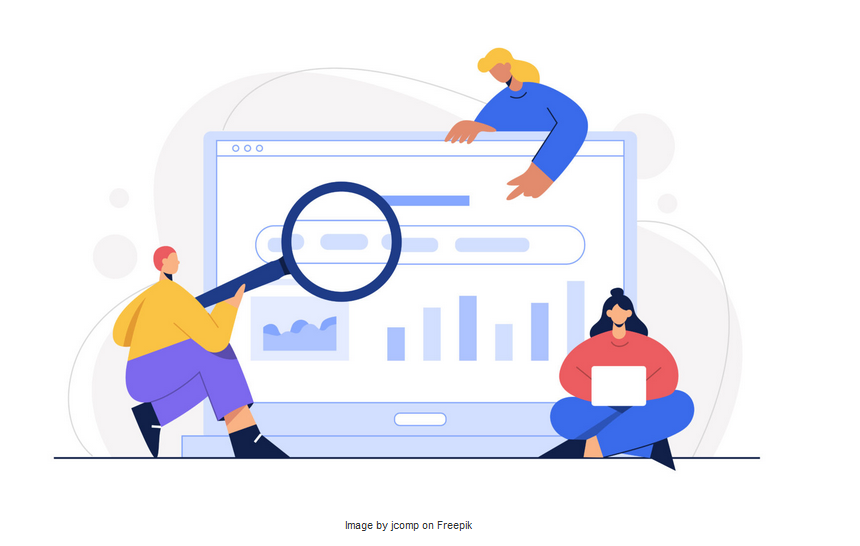
Project leader(s): Prof. Dr. Christian Djeffal, Prof. Dr. Mark Findlay
Period: 01.09.2020 – 01.09.2021
Funding institution: Institute for Ethics in Aritifical Intelligence (IEAI) TUM
Themes: COVID-19; Rule Of Law; Law by design; Critical Design; Privacy Preservation; Contact Tracing, Control Technologies

AI language technologies have a hugely disruptive potential that could provide possibilities for advances in areas that these technologies have not yet permeated. The legal sector is an excellent example in this regard. Recent advances such as new transformers like BERT and GPT3 offer ample prospects for innovation and could help overcoming long known issues such as access to justice. However, neither the requirements for adoption nor the ethical, legal and social implications are sufficiently explored. The project NLawP, a cooperation between the Professorship for Law, Sciences and Technology and the department of Informatics, evaluates how AI technologies can disruptively affect the legal sector. It will produce an overview of current developments and future trends in research and the legal tech market through interchange with key stakeholders in the field.
This project will map state-of-the-art applications and current information about their implications concerning responsible AI. The mapping should result in a better understanding of how specific design choices improve ethical, legal and social aspects. With its multi-perspective approach, the map has the potential to become a central reference point in the debate.
Based on this, the research team will inquire into how data governance can enable a responsible and efficient adoption. The project will allow research into this emerging field of AI with a view to innovation, adoption, responsible uses, and infrastructures. The project will also look into the following steps concerning a sustainable data infrastructure for the legal sector and potential stakeholders’ innovations and imaginaries.
Further informations can be found here.
Project leader(s): Prof. Dr. Christian Djeffal; Prof. Dr. Florian Matthes
Project leader(s): Prof. Dr. Gerog Carle, Prof. Dr. Marc-Oliver Pahl
Period: 01.09.2020 – 01.06.2021
Funding institution: Deutsch-Französische Akademie für die Industrie der Zukunft
Themes: COVID-19; QRONITON; Law by design; Critical Design; Privacy Preservation; Contact Tracing
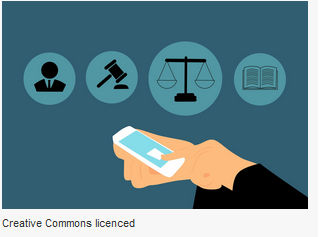
Digitization in highly regulated spaces such as the healthcare sector and legal domain requires interdisciplinary views on legal requirements and technical applications. Artificial Intelligence can be used for the betterment of society, but will also bring about a new dimension to the practice in these fields. ‘Excellence in research and teaching’ requires students that can think outside the traditional boundaries of research cultures. By focusing on bringing students together with different backgrounds, this week will bolster the students’ interactional expertise and help them with questions that exist in this new dimension. It prepares the current and next generation of engineers and social scientists to better understand AI and its implications.
The Plug-in module “Mapping digitization in highly regulated spaces” will allow highly motivated students to analyze digital applications of artificial intelligence in interdisciplinary teams, and to gain in-depth knowledge about the legal frameworks of technology and its social impact. Students from the various departments will focus on state-of-the-art applications from the healthcare industry and legal domain. These fields will be at the center of discussion since they are socially impactful, highly regulated, and are expected to transform heavily with the rise of AI. In line with the strategy of excellence, it allows students to reflect on technical developments in the sense of „Responsible Research and Innovation“ in these fields. Using concrete cases, students learn about legal requirements and regulatory mechanisms as well as technical implementation possibilities. Where the learning moments for engineers will be developed through understanding the ethical implications of the technologies or the legal requirements for implementation, students with a social background will have these moments by understanding how AI functions and what phenomena such as ‘biased AI’ means. By doing so, they gain experience with legally compliant technical designs but also learn to record and share their findings through interesting and impactful outputs. Not only is it important to share the output with fellow students, but also to make it accessible for other groups in society. Through media such as podcasts and videos, students can share their findings in an open-access digital environment.
Project leader(s): Dr. Eduardo Magrani
Period: 01.09.2020 - 31.08.2021
Project type: Plug-in Module
Funding institution: Internal Funding
The project Coding Public Value focuses on the development and evaluation of methods for responsible software engineering for the common good and corresponding institutional, political and organizational frameworks for public-service media platforms. How can legal, political and user-oriented requirements of public media be translated into requirements, methods and quality assessment practices for the engineering of software and which institutional, political, and organizational requirements have to be implemented in order to operate public service media platforms on the foundation of such public service-oriented software engineering? The project combines Science & Technology Studies, Media and Communication Research, Legal Studies, and empirical Software Engineering in an interdisciplinary collaboration.
Project leader(s): Prof. Dr. Christian Djeffal, PD Dr. Jan-Hendrik Passoth, Assoc. Prof. Dr. Daniel Mendez, Prof. Dr. Hans-Bernd Brosius, Prof. Dr. Wolfgang Schulz
Period: 01.01.2020 - 31.03.2023
Project type: Third-party funded Project
Funding institution: bidt

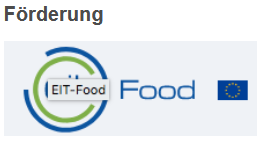
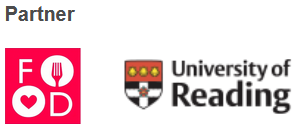
The project develops a digital toolkit (Web App/App) for communicating health claims in cooperation with colleagues from linguistics and and public health organizations. We follow the development ethnographically and develop formats and practices of responsible software design and the participation stakeholders and concerned publics.
Project leader(s): Prof. Dr. Rodney Jones (University of Reading), Jaed Kahn (FoodMaestro), Bridget Benelam (British Nutrition Foundation), Prof. Dr. Christian Djeffal
Period: 01.2020 - 12.2021
Project type: ["Drittmittelprojekt \/ Third-party funded Project"]
Funding institution: EU EIT Food
Motivation
Digital technologies are constantly becoming a bigger part of our everyday life and are shaping our lives and how we live together. Legal advice often plays an important and perhaps still underestimated role when shaping these technologies. The project will shed light on the question whether law can be made fruitful as a design resource.
Goals and approach
The goal is to explore law as a co-productive force and resource for technological design, and to make the use of law and technology cooperative. Therefore, the project develops and improves two intervention approaches aimed at providing legal advice on the design of technology. One intervention addresses the legally compliant design of technology, while the other intervention addresses innovation processes that serve to implement ethical, legal, and social goals. Both interventions are to be developed, tested, reflected upon and improved iteratively, i.e. an effective solution is to be approached step by step. In doing so, the project is in continuous dialogue with the professional public and the general public.
Innovations and perspectives
Through two interventions, creative and original approaches that anchor legal, but also ethical and social aspects in technology development projects, will be tested. These interventions are intended as methods to expand the toolbox of legal technology development consulting.
Project leader(s): Prof. Dr. Christian Djeffal
Period: 31.03.2021-28.02.2024
Funding institution: Federal Ministry of Education and Research
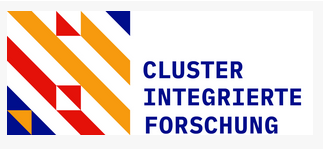
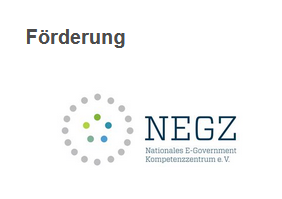
The aim of the project “Artificial Intelligence and Translation in Public Administration” is to explore the potential of AI translation software for public administration. The project will address possibilities, requirements and feasibility according to the state of the art. The quality of automated translations has been raised to a completely new level over the past 10 years. Artificial neural networks develop translation proposals which, although they do not yet come close to human performance, are still used by many translation agencies as source translations.
Project leader(s): Prof. Dr. Christian Djeffal
Period: September 2019 - December 2020
Project type: Third-party funded Project
Funding institution: National E-Government Competence Center
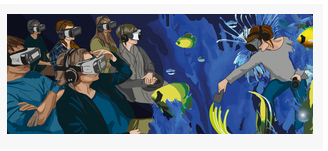
Recently, more and more artists have begun experimenting with the medium of Virtual Reality (VR) and producing immersive, computer generated worlds. Further, festivals and galleries around the world have started exhibiting VR artwork. However, despite this hype around VR art and its very fast and successful entry in the art world, it seems that Virtual Reality is still very nascent and just at the beginning to develop and define its own language, aesthetic, contents etc. and to become a new artistic medium and a new art form. This PhD project investigates how VR is translated into an art medium and an art form. How exactly does VR get established as its own art form? What do the artistic strategies and methods of appropriation of this new and nascent medium look like in detail? How does a new aesthetic language develop? Who is involved in all of these processes? Are there similarities to the strategies and processes of developing and establishing former avant-garde forms as their own art forms? To answer the outlined research questions, a set of different qualitative methods is employed such as document analysis, semi-structured interviews and ethnographic observations of artistic practices in the artist’s studio. By trying to understand the process of translating VR into an artistic medium this project aims to expand different theoretical approaches starting from sociology of art, through research on art in the tradition of Science and Technology Studies (MCTS) to media theories.
Project leader(s): Mariya Dzhimova
Period: Since January 2017
Project type: Promotionsprojekt / PhD Project
